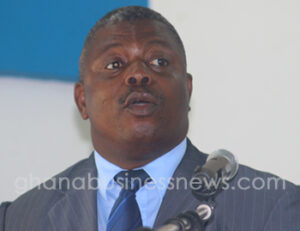GSS has mandate to conduct corruption survey – CHRAJ

The Commission on Human Rights and Administrative Justice (CHRAJ) says the Ghana Statistical Service (GSS) is a major state institution mandated by law to conduct national surveys, including that of corruption.
Mr. Richard A. Quayson, CHRAJ Deputy Commissioner, said the United Nations Convention Against Corruption enjoined states to conduct surveys to establish corruption issues in a country.
Also, the 1992 Constitution mandates the GSS to conduct such surveys and CHRAJ and other state agencies to see to the fight against corruption.
He, therefore, said contributions from the public and civil society organizations should be in the proper context as the survey report churned out recently by the GSS in collaboration with CHRAJ and the United Nations Office on Drugs and Crime (UNODC) was in the right direction.
Mr Quayson said this in response to critics, who had questioned GSS and CHRAJ conduct of a survey on people’s experiences and views on corruption at a day’s seminar organized by the Ghana News Agency for both state and non-state organizations to address national issues to enhance development.
Speaking on the topic: “Is the fight against corruption a mirage or reality, the perspective of CHRAJ,” Mr Quayson explained that the survey report was one of the most informative documents that had been produced on corruption.
He noted that the result had confirmed the perceptions of Ghanaians about corruption and the government and all stakeholders needed to find ways to remedy the situation.
Touching on some public institutions raising issues of them not being contacted to respond to the findings before the publication, he said “you are being paid by the taxes of the people and they are giving you feedback as to how you are performing, and you are complaining.
“We have problems as a nation, public, private sector, and individuals, we are not living up to our responsibilities, they must stop complaining and deal with the outcome of the report”.
The CHRAJ Deputy Commissioner added that Ghana should be paying more attention to the high corruption in the public service.
Mr. Francis Ameyibor, GNA-Tema Regional Manager, in a welcome address, said called for a collective approach to fight corruption as it had dire consequences for all.
Other speakers at the stakeholders’ engagement were: Mr. Richard Kovey, a convenor at Campaign Against Privatization and Commercialization of Education (CAPCOE); Mr. Edward Kareweh, General Secretary of the Ghana Agricultural Workers Union (GAWU); and Mr. Papi-Paulo Zigah, Director of International Operations, Future Careers Ghana.
Source: GNA
